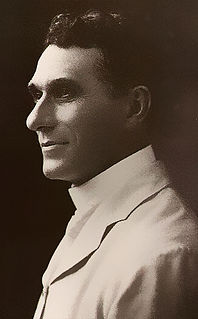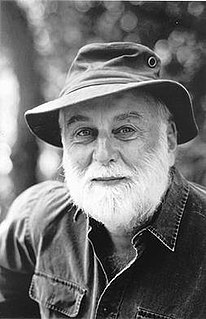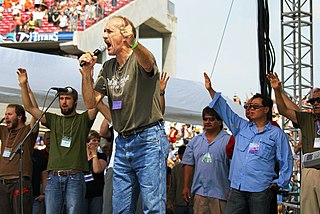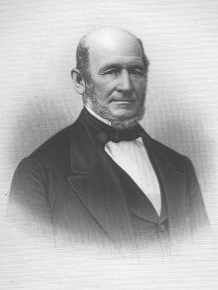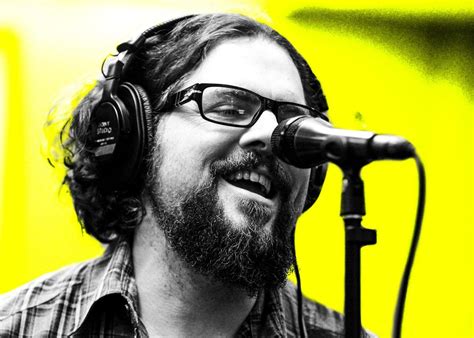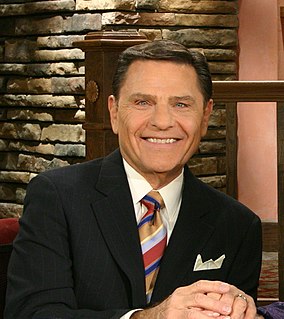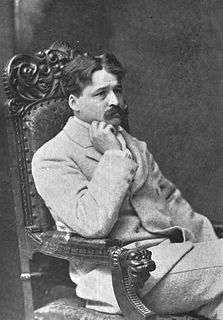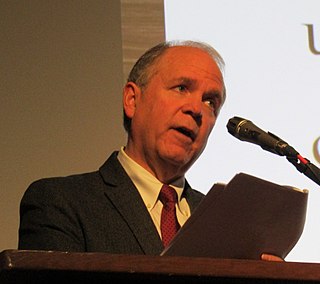Top 894 Adam Parrish Quotes & Sayings - Page 15
Explore popular Adam Parrish quotes.
Last updated on April 17, 2025.
According to the legend an evil old doctor, who called himself God and us dogs, created the first boy in his adolescent image. The boy peopled the garden with male phantoms that rose from his ejaculations. This angered God, who was getting on in years. He decided it endangered his position as CREATOR. So he crept upon the boy and anaesthetized him and made Eve from his rib. Henceforth all creation of beings would process through female channels. But some of Adam's phantoms refused to let God near them under any pretext.
Now hear it, O inhabitants of the earth, Jew and Gentile, Saint and sinner! When our father Adam came into the garden of Eden, he came into it with a celestial body, and brought Eve, one of his wives, with him. He helped to make and organize this world. He is Michael, the Archangel, the Ancient of Days! about whom holy men have written and spoken -- He is our Father, and our God, and the only God with whom we have to do. Every man upon the earth, professing Christians or non professing, must hear it, and will know it sooner or later.
Science has only two things to contribute to religion: an analysis of the evolutionary, cultural, and psychological basis for believing things that aren't true, and a scientific disproof of some of faith's claims (e.g., Adam and Eve, the Great Flood). Religion has nothing to contribute to science, and science is best off staying as far away from faith as possible. The "constructive dialogue" between science and faith is, in reality, a destructive monologue, with science making all the good points, tearing down religion in the process.
If, in the case of the worst sinners and those who formerly sinned much against God, when afterwards they believe, the remission of their sins is granted and no one is held back from baptism and grace, how much more, then, should an infant not be held back, who, having but recently been born, has done no sin, except that, born of the flesh according to Adam, he has contracted the contagion of that old death from his first being born. For this very reason does he [an infant] approach more easily to receive the remission of sins: because the sins forgiven him are not his own but those of another
If... Adam had trusted in God and been nourished from the tree of life (Gn. 2:9)? he would not have set aside the immortality that had been granted. For such immortality is eternally preserved by participation in life, since all life is genuine and preserved by appropriate food. The food of that blessed life is 'the bread that came down from heaven and gives life to the world' (Jn. 6:33), just as the inerrant Word Himself declares about Himself in the Gospels.
We've fallen for the devil's lie. His most basic strategy, the same one he employed with Adam and Eve, is to make us believe that sin brings fulfillment. However, in reality, sin robs us of fulfillment. Sin doesn't make life interesting; it makes life empty. Sin doesn't create adventure; it blunts it. Sin doesn't expand life; it shrinks it. Sin's emptiness inevitably leads to boredom. When there's fulfillment, when there's beauty, when we see God as he truly is-an endless reservoir of fascination-boredom becomes impossible.
The first recorded instruction given to Adam after the Fall dealt with the eternal principle of work. The Lord said: "In the sweat of thy face shalt thou eat bread." (Gen. 3:19.) Our Heavenly Father loves us so completely that he has given us a commandment to work. This is one of the keys to eternal life. He knows that we will learn more, grow more, achieve more, serve more, and benefit more from a life of industry than from a life of ease.
The thing that was forfeited in the garden was regained. God gave him [Adam] dominion over the works of His hand. God made him His understudy, His king to rule over everything that had life. Man was master, man lived in the realm of god. He lived on terms of equality with God. God was a faith God. All God had to do was to believe that the sun was, and the sun was. All God had to do was to believe that the planets would be, and they were. Man belonged to God's class of being - a faith man, And he lived in the creative realm of God
People are said to believe in God, or to disbelieve in Adam and Eve. But in such cases what is believed or disbelieved is that there is an entity answering a certain description. This, which can be believed or disbelieved is quite different from the actual entity (if any) which does answer the description. Thus the matter of belief is, in all cases, different in kind from the matter of sensation or presentation, and error is in no way analogous to hallucination. A hallucination is a fact, not an error; what is erroneous is a judgment based upon it.
The Woman had once been supreme; in France she still seemed potent, not merely as a sentiment but as a force; why was she unknownin America? for evidently America was ashamed of her, and she was ashamed of herself, otherwise they would not have strewn fig-leaves so profusely all over her. When she was a true force, she was ignorant of fig-leaves, but the monthly-magazine-made American female had not a feature that would have been recognized by Adam. The trait was notorious, and often humorous, but anyone brought up among Puritans knew that sex was sin. In any previous age, sex was strength.
I must say, I am thrilled with my fan base. For some reason some of them are quite young, so they are quite frightened. I remember when I did 'Click' and I'd see Adam Sandler's fan base. He's the guy that people feel that he's their best friend, so he's walking down the street and people sort of high five him and want to tell him a joke or invite him to come home and have a sandwich with them. Mine are not like that. Mine tend to go: 'Argh,' and look horrified. They shake and take a picture from a really long way away. I do feel I've got quite good, respectful ones though.
Before the coming of Jesus Christ, men fled away from God and, being attached to the earth, refused to unite themselves to their Creator. But the loving God has drawn them to Himself by the bonds of love, as He promised by the prophet Osee [Hosea]: "I will draw them with the cords of Adam, with the bonds of love" (11:4). These bonds are the benefits, the lights, the calls to His love, the promises of Paradise which He makes to us, but above all, the gift which He has bestowed upon us of Jesus Christ in the Sacrifice of the Cross and in the Sacrament of the Altar.
And I, the former mystic, was thinking: Yes, man is stronger, greater than God. When Adam and Eve deceived You, You chased them from paradise. When You were displeased by Noah’s generation, You brought down the Flood. When Sodom lost Your favour, You caused the heavens to rain down fire and damnation. But look at these men whom You have betrayed, allowing them to be tortured, slaughtered, gassed, and burned, what do they do? They pray before You! They praise Your name!
Now, nakedness is a delightful condition. And it keeps you very pleasantly cool - especially, I suppose, if you happen to be a man. But as I walked on eastward that afternoon through my private, segregated, Tonto world (exercising due care at first for previously protected sectors of my anatomy) I found I had gained more than coolness. I felt a quite unexpected freedom from restraint. And after a while I found that I had moved on to a new kind of simplicity. A simplicity that had a fitting, Adam-like, in-the-beginning earliness about it.
The moment in the account of Adam and Eve in the book of Genesis is when they realize they're naked and try and cover themselves with fig leaves. That seemed to me a perfect allegory of what happened in the 20th century with regard to literary modernism. Literary modernism grew out of a sense that, “Oh my god! I'm telling a story! Oh, that can't be the case, because I'm a clever person. I'm a literary person! What am I going to do to distinguish myself?...a lot of modernism does seem to come out of a fear of being thought an ordinary storyteller.
Think of the beginning of the story of the beginning of everything: Adam (without Eve and without divine guidance) names the animals. Continuing his work, we call stupid people bird-brained, cowardly people chickens, fools turkeys. Are these the best names we have to offer? If we can revise the notion of women coming from a rib, can’t we revise our categorizations of the animals that, draped with barbecue sauce, end up as the ribs on our dinner plates — or for that matter, the KFC in our hands?
When Jesus was baptized by John, the heavens opened and the Dove descended upon Him. Immediately thereafter, that same Dove drove Him into the wilderness to fast for 40 days and to contend with the territorial strongman over the earth, satan himself. For 40 days, Jesus warred through prayer and fasting to reverse the curse of Adam and Eve and to overcome the devil and release atomic power into the earth. The results recorded in Luke show that history changed forever through the strength and victory the Lord gained by His obedience. Divine power was now His!
Allah, the Exalted, gave the angels intellect without desires, He gave the animals desires without intellect, and He gave both to the sons of Adam. So a man whose intellect prevails over his desires is better than the angels, whilst a man whose desire prevails over his intellect is worse than the animals.
After modernism, things changed. Indeed, modernism sometimes seems to me like an equivalent of the Fall. Remember, the first thing Adam and Eve did when they ate the fruit was to discover that they had no clothes on. They were embarrassed. Embarrassment was the first consequence of the Fall. And embarrassment was the first literary consequence of this modernist discovery of the surface. "Am I telling a story? Oh my God, this is terrible. I must stop telling a story and focus on the minute gradations of consciousness as they filter through somebody's.
It is this one Spirit who makes it possible for an infant to be regenerated . . . when that infant is brought to baptism; and it is through this one Spirit that the infant so presented is reborn. For it is not written, 'Unless a man be born again by the will of his parents' or 'by the faith of those presenting him or ministering to him,' but, 'Unless a man be born again of water and the Holy Spirit.' The water, therefore, manifesting exteriorly the sacrament of grace, and the Spirit effecting interiorly the benefit of grace, both regenerate in one Christ that man who was generated in Adam.
Blue." It was Ronan's voice, for the first time, and everyone, even Helen, twisted their head towards him. His head was cocked in a way that Gansey recognized as dangerous. Something in his eyes was sharp as he stared at Blue. He asked, "Do you know Gansey?" ... Blue looked defensive under their stares. She said reluctantly. "Only his name." With his fingers loosely together, elbows on his knees, Ronan leaned forward across Adam to be closer to Blue. He could be unbelievably threatening. "And how is it," he asked," you came to know Gansey's name?
The purpose of God is the sovereign cause of all that good that is in man, and of all that external, internal and eternal good that comes to man. Not works past, for men are chosen from everlasting; not works present, for Jacob was loved and chosen before he was born; nor works foreseen, for men were all corrupt in Adam. All a believer's present happiness, and all his future happiness springs from the eternal purpose of God.
Through humility, soul-searching, and prayerful contemplation we have gained a new understanding of certain dogmas. The church no longer believes in a literal hell where people suffer. This doctrine is incompatible with the infinite love of God. God is not a judge but a friend and a lover of humanity. God seeks not to condemn but only to embrace. Like the fable of Adam and Eve, we see hell as a literary device. Hell is merely a metaphor for the isolated soul, which like all souls ultimately will be united in love with God.
It hath been said, that there is of nothing so much in hell as of self-will. The which is true, for there is nothing else there than self-will, and if there were no self-will, there would be no Devil and no hell. When it is said that Lucifer fell from Heaven, and turned away from God and the like, it meaneth nothing else than that he would have his own will, and would not be at one with the Eternal Will. So was it likewise with Adam in Paradise. And when we say Self-will, we mean, to will otherwise than as the One and Eternal Will of God willeth.
When we escape from this earth, do we suppose we are going to heaven? Do you suppose you are going to the earth that Adam came from? that Eloheim came from? where Jehovah the Lord came from? No. When you have learned to become obedient to the Father that dwells upon this earth, to the Father and God of this earth, and obedient to the messengers He sends-when you have done all that, remember you are not going to leave this earth. You will never leave it until you become qualified, and capable, and capacitated to become a father of an earth yourselves.
If you are proud of your descent from virtuous ancestors, how empty their virtue will leave your hands if you yourself are not virtuous. How little pride your ancestors will have in you in this world and the next if you do no good! All men are children of Adam whom Allah created by His own Hands, giving him paradise for a dwelling place and letting His angels bow down before him. But how little is the advantage from this since all the vices dwell in mankind and all the wicked impious people are among their number.
None of us makes it through this life without problems and challenges — and sometimes tragedies and misfortunes. After all, in large part we are here to learn and grow from such events in our lives. We know that there are times when we will suffer, when we will grieve, and when we will be saddened. However, we are told, “Adam fell that men might be; and men are, that they might have joy.” How might we have joy in our lives, despite all that we may face? Again from the scriptures: “Wherefore, be of good cheer, and do not fear, for I the Lord am with you, and will stand by you."
Building on exhaustive research and probing into such diverse enterprises as textbook production and marketing, public education, and state-level politics, Adam R. Shapiro has situated the Scopes trial within a much broader context than any scholar before him. Trying Biology also demonstrates how ideologues have used differing interpretations of the Scopes trial to advance their agendas. By situating the trial within this much broader framework, the author has significantly enlarged our understanding of the conversations between religion and science in twentieth-century America.
Not Christian or Jew or Muslim, not Hindu, Buddhist, sufi, or zen. Not any religion or cultural system. I am not from the East or the West, not out of the ocean or up from the ground, not natural or ethereal, not composed of elements at all. I do not exist, am not an entity in this world or the next, did not descend from Adam or Eve or any origin story. My place is placeless, a trace of the traceless. Neither body or soul. I belong to the beloved, have seen the two worlds as one and that one call to and know, first, last, outer, inner, only that breath breathing human being.
It was Adam, but he was too late. He couldn’t love me anymore. He would be so angry with me. I had to hide. He didn’t love me so he might hurt me when he was angry. When he calmed down, that would hurt him. I didn’t want him hurting because of me. There was nowhere for a person to hide. So I wouldn’t be a person. My eyes fell on the shelves that lined the far back corner. A coyote could hide there.
Everyone from Adam Smith, John Stewart Mill, they were all reforms. What they wanted to reform was getting rid of this parasitic landlord class that had conquered England in 1066 and it's the heirs of the military warlords who ended up taking the land and making everybody pay them and all of their descendants just for having been conquered. You can see the carry-over of this today. The rent that people have to pay, the money they have to pay the banks instead of having a public option. That's the price they still have to pay for being conquered.
When Adam's House Cat broke up in 1991, which was Cooley and my band for six years, I put my entire life, heart, and soul into that thing. I mean everything. I ended up getting divorced over it, and then the band broke up and I was left with nothing. I had nothing to show for six years of my life except for a finished record that still hasn't come out. And I went through a pretty deep, dark, two-year depression after that, [which] probably resulted in some of the earlier songs that became Drive-By Trucker songs, for that matter.
Zerts' are what I call desserts. 'Trée-trées' are entrées. I call sandwiches 'sammies,' 'sandoozles,' or 'Adam Sandlers.' Air conditioners are 'cool blasterz' with a 'z' - I don't know where that came from. I call cakes 'big ol' cookies.' I call noodles 'long-ass rice.' Fried chicken is 'fry-fry chicky-chick.' Chicken parm is 'chicky-chicky-parm-parm.' Chicken cacciatore? 'Chicky-cacc.' I call eggs 'pre-birds,' or 'future birds.' Root beer is 'super water.' Tortillas are 'bean blankets.' And I call forks 'food rakes.'
The Bible says that God gave this earth to the sons of men ... and when [Adam] turned and gave that dominion to Satan, look where it left God. If left Him on the outside looking in ... He had no legal right to do anything about it, did He? ... He had injected Himself illegally into the earth -- what Satan had intended for Him to do was to fall for it -- pull off an illegal act and turn the light off in God, and subordinate God to himself ... He intended to get God into such a trap that He couldn't get out.
There are all sorts of institutions in the economic world which depart from the simple price/market model which I worked on in an earlier incarnation and which has been sort of the mainstream of economic theories since Adam Smith and David Ricardo. There are all sorts of contractual relations between firms and individuals which do not conform to the simple price theory - profit-sharing schemes and so forth - and the explanation for these suddenly became clear. We now understand why these emerged and that they are based on differences in information in the economy.
... an essential feature of a decent society, and an almost defining feature of a democratic society, is relative equality of outcome - not opportunity, but outcome. Without that you can't seriously talk about a democratic state... These concepts of the common good have a long life. They lie right at the core of classical liberalism, of Enlightenment thinking... Like Aristotle, [Adam] Smith understood that the common good will require substantial intervention to assure lasting prosperity of the poor by distribution of public revenues.
The world values the seer above all men, and has always done so. Nay, it values all men in proportion as they partake of the character of seers. The Elgin Marbles and a decision of John Marshall are valued for the same reason. What we feel in them is a painstaking submission to facts beyond the author's control, and to ideas imposed on him by his vision. So with Beethoven's Symphonies, with Adam Smith's Wealth of Nations - with any conceivable output of the human mind of which you approve. You love them because you say, These things were not made, they were seen.
I have more to boast of than ever any man had. I am the only man that has ever been able to keep a whole church together since the days of Adam. A large majority of the whole have stood by me. Neither Paul, John, Peter, nor Jesus ever did it. I boast that no man ever did such a work as I. The followers of Jesus ran away from Him; but the Latter-day Saints never ran away from me yet.
He ordered Ronan to put on some terrible music--Ronan was always too happy to oblige in this department--and then he abused the Camaro at every stoplight on the way out of town. "Put your back into it!" Gansey shouted breathlessly. He was talking to himself, of course, or to the gearbox. "Don't let it smell fear on you!" Blue wailed each time the engine revved up, but not unhappily. Noah played the drums on the back of Ronan's headrest. Adam, for his part, was not wild, but he did his best not to appear unwild, so as not to ruin it for the others.
The writings of latter-day prophets clearly teach that the sorrows and sufferings endured by Adam and Eve upon their leaving the Garden of Eden were ordained by God and were a necessary part of their-and our-earthly experience. President Howard W. Hunter, then a member of the Quorum of the Twelve Apostles, taught: "We came to mortal life to encounter resistance. It was part of the plan for our eternal progress. Without temptation, sickness, pain, and sorrow, there could be no goodness, virtue, appreciation for well-being, or joy."
I look at the books on my library shelves. They certainly seem dormant. But what if the characters are quietly rearranging themselves? What if Emma Woodhouse doesn't learn from her mistakes? What if Tom Jones descends into a sodden life of poaching and outlawry? What if Eve resists Satan, remembering God's injunction and Adam's loving advice? I imagine all the characters bustling to get back into their places as they feel me taking the book down from the shelf. Hurry, they say, he'll expect to find us exactly where he left us, never mind how much his life has changed in the meantime.
... for our sake loosing within Himself the bonds of bodily birth, He granted us through spiritual birth, according to our own volition, power to become children of God instead of children of flesh and blood if we have faith in His Name (cf. Jn. 1:12-13). For the Savior the sequence was, first of all, incarnation and bodily birth for my sake; and so thereupon the birth in the Spirit through baptism, originally spurned by Adam, for the sake of my salvation and restoration by grace, or, to describe it even more vividly, my very remaking.
In the legends that males have invented to explain life, the first human creature is a man named Adam. Eve arrives later, to give him pleasure and cause trouble. In the paintings that adorn churches, God is an old man with a beard, never an old woman with white hair. And all the heroes are males: from Prometheus who discovered fire to Icarus who tried to fly, on down to Jesus whom they call the Son of God and of the Holy Spirit, almost as though the woman giving birth to him were an incubator or a wetnurse.
Paul Ryan, who teamed up with Akin in the House to sponsor harsh anti-abortion bills, may look young and hip and new generation, with his iPod full of heavy metal jams and his cute kids. But he's just a fresh face on a Taliban creed - the evermore antediluvian, anti-women, anti-immigrant, anti-gay conservative core. Amiable in khakis and polo shirts, Ryan is the perfect modern leader to rally medieval Republicans who believe that Adam and Eve cavorted with dinosaurs.
Again, after his fall, God gave him an occasion to repent and to receive mercy but he kept his stiff-neck held high. He came to him and said "Adam, Where are you?" instead of saying "What glory you have left and what dishonor you have arrived at?" After that, He asked him "Why did you sin? Why did you transgress the commandment?" By asking these questions, He wanted to give him the opportunity to say, "Forgive me." However, he did not ask for forgiveness. There was no humility, there was no repentance, but indeed the opposite.
The importance of the romantic element does not rest upon conjecture. Pleasing testimonies abound. Hannah More traced her earliest impressions of virtue to works of fiction; and Adam Clarke gives a list of tales that won his boyish admiration. Books of entertainment led him to believe in a spiritual world; and he felt sure of having been a coward, but for romances. He declared that he had learned more of his duty to God, his neighbor and himself from Robinson Crusoe than from all the books, except the Bible, that were known to his youth.
Who is pure in heart? Only those who have surrendered their hearts completely to Jesus that he may reign in them alone. Only those whose hearts are undefiled by their own evil--and by their own virtues too. The pure in heart have a child-like simplicity like Adam before the fall, innocent alike of good and evil: their hearts are not ruled by their conscience, but by the will of Jesus.
Adam Smith is an egalitarian, he believed in equality of outcome, not opportunity. He is an enlightenment figure, pre-capitalist. He says, suppose in England, one landowner got most of the land and other people would have nothing to live on. He says it wouldn't matter much, because the rich land owner, by virtue of his sympathy for other people would distribute resources among them, so that by an invisible hand, we would end up with a pretty egalitarian society. That is his conception of human nature.
She remembered the story from her childhood, about Adam and Eve in the garden, and the talking snake. Even as a little girl she had said - to the consternation of her family - What kind of idiot was Eve, to believe a snake? But now she understood, for she had heard the voice of the snake and had watched as a wise and powerful man had fallen under its spell. Eat the fruit and you can have the desires of your heart. It's not evil, it's noble and good. You'll be praised for it. And it's delicious.
This was nonsense, he thought. The need of her was a physical thing, like the thirsty of a sailor becalmed for weeks on the sea. He'd felt the need before, often, often, in their years apart. But why now? She was safe; he knew where she was - was it only the exhaustion of the past weeks and days, or perhaps the weakness of creeping age that made his bones ache, as though she had in fact been torn from his body, as God had made Eve from Adam's rib?
He thinks great folly, child,' said Aslan. "This world is bursting with life for these few days because the song with which I called it into life still hangs in the air and rumbles in the ground. It will not be so for long. But I cannot tell that to this old sinner, and I cannot comfort him either; he has made himself unable to hear my voice. If I spoke to him, he would hear only growlings and roarings. Oh, Adam's son, how cleverly you defend yourself against all that might do you good!
Dad, you played rounders with me, even though you hated it and wished I'd take up cricket. You learned how to keep a stamp collecion because I wanted to know. For hours you sat in hospitals and never, not once, complained. You brushed my hair like a mother should. You gave up work for me, friends for me, four years of your life for me. You never moaned. Hardly ever. You let me have Adam. You let me have my list. I was outrageous. Wanting, wanting so much. And you never said, 'That's enough. Stop now.
I am the man you've needed all you life. I can give you whatever you wish before you even realize you are wishing for it. I can fill your every longing , heal your every wound, right your every wrong. You have enemies? Not with me at your side. You have hunger? I will find the most succulent, ripe morsel and feed you with my bare hands. You have pain? I will ease it. Bad dreams? I will chase them asunder. Regrets? I will go back and undo them. Command me, Beauty, and I am yours. -Adam Black







